Your first days in Germany can be very overwhelming and confusing. The forms you must fill in and the administrative tasks you must do will depend on your reason for being in Germany. A student will have a different to-do list from someone who comes here to work.
The following list is the general things that everyone needs to do.
Arriving at the airport
The only direct flights between SA and Germany are from Frankfurt to Johannesburg and Cape Town. Some carriers have seasonal flights between Munich and Jhb/Cpt.
The major airports in Germany are Frankfurt, Munich, Hamburg, Berlin and Düsseldorf.
Almost all towns can be reached via train from airport hubs. Other options to get to your destinations are an organised airport transfer or hiring a car via a car rental company or mobility companies like Car2Go. More information can be found in the Mobility section below.

Travel to Germany – Tips
If you’re planning a trip to Germany, we’ve got some travel tips that we think you’ll find incredibly helpful. If you’ve got your own tips
Bringing your Furbabies with you

Pets – Personal stories
Here are some shared experiences by our Facebook members. If you would like to add your experience to our website, please submit it via our

Pets
Dangerous (Banned) Dogs Some dog breeds are banned in Germany. There are additional rules for individual states. Up-to-date information can be found on the Zoll
Remember you have to go through customs, so make sure you know what you are allowed to bring with you.

What can I bring into Germany
It is very tempting to bring some South African goodies with you when you travel to Germany, and while most items are allowed, there are Restrictions.
Arrival at your home
One of the biggest surprises you can get is walking into your new home and there is no kitchen installed, nor light fittings. Make sure you know what to expect if you rent accommodation.
Germany uses type C and F power plugs, make sure you have the correct adaptors or plugs.

Housing in Germany
Types of Housing Flat – Wohnung / Apartment. Atlbauwohnung – An old building, that might be protected Dachgeschosswohnung – penthouse but usually with slanted walls

Finding a place to stay
Finding a place to rent is almost like doing a job interview. You have to “advertise” yourself and you will have to go for interviews.
Registering (Anmeldung)
You must register at your local town hall (Bürgeramt) within two weeks of arriving in Germany. This is called a Meldepflicht. You will be issued a registration confirmation (Anmeldebescheinigung). Keep it in a safe place, but in the event of loss, you can re-apply for it at the Bürgeramt.
In smaller towns, the Bürgeramt and Ausländerbehörde could be in the same building.

Registering at the Local Town Office
If you plan to stay in Germany for longer than 3 months, you will need to register at your local Bürgeramt (Town office).This is called
Medical Insurance
Medical insurance is compulsory. If you do not already have medical insurance, you need to organise it before applying for your residence permit. You need proof of medical insurance before you can apply for a residence permit
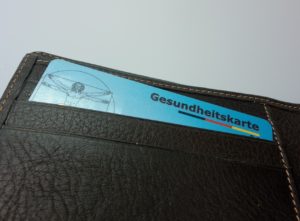
Medical
Health insurance is mandatory for everyone visiting or living in Germany.When living in Germany you can either take our private (privaten Krankenversicherung – PKV) or public (gesetzliche Krankenversicherung – GKV) health insurance. Your choice will depend on your age, salary and employment status.To know: It is extremely difficult to change from Private to Public insurance.
Residence permit
A visa allows you to travel to Germany. When you want to stay longer than 3 months you need to apply for the correct visa in your home country and then for a residence permit in Germany. You apply for your residence permit at the Ausländerbehörde. You need your registration confirmation (Anmeldebescheinigung) before you can apply for residence.
In smaller towns, the Bürgeramt and Ausländerbehörde could be in the same building.
Permanent Residence (Niederlassungserlaubnis) is only available after living in Germany for s specific time. Your first residence as a South African citizen in Germany will always be temporary.
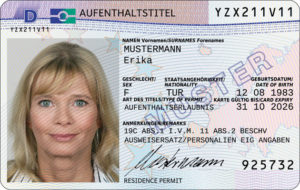
Temporary Residence
A Visa allows you to enter Germany, but your stay is limited to no more than 90 days in a 180-day cycle.If you want to

Applying for residence
A visa allows you to enter Germany. If you want to stay longer than 3 months you will need to apply for a residence permit (Aufenthaltserlaubnis) at
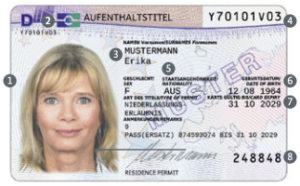
Permanent Residence
Permanent residence in Germany is called a Niederlassungserlaubnis and may be granted in the form of a Settlement permit or Permanent EC residence permit. Very important!! The
Pension
You need a social security number to register for a statuary pension. A tip, if you are not employed when moving to Germany, for example joining as a spouse, consider registering at the Arbeitsagentür, as the time you are unemployed counts towards contribution years on your pension.

Sozialversicherung / Social Insurance
The following Social Insurances are payable in Germany when you are a full-time employee or trainee: Krankenvesicherung / Medical Insurance Plegeversicherung / Long Term care

Pension
Homepage of the Deutsche Rentenversicherung Information about the German state pension scheme can be found on their homepage for foreign languages. The German site has a lot more information.
Bank Account
Depending on your situation you will need to open a German Bank account. A Girokonto is a current account that you use for daily banking like transfers (Überweisung). A Sparkonto is a pure savings account.
As a foreigner, you need the following to open a traditional Bank account:
- Passport
- Proof of residence (Anmeldebescheinigung)
- Proof of income
- A Schufa if possible (credit report)
- Completed application Form
- Initial deposit if required

Chad Joubert – Wealth Advisor
DIE GUTE WAHL – THE GOOD CHOICE – Agency for Allfinanz Deutsche Vermögensberatung. We are here for you, we provide you with professional support in
Internet and mobile
Internet, mobile and television packages are usually sold as a bundle.
Warning! Germany has very strict copyright laws. Do not violate copyright laws by illegally downloading a film, music, or other web content.
Acquaint yourself about what is allowed and what the penalties are for not adhering to the rules.
You can also be held responsible for any downloads in your household, also from visitors using your internet connection.

Internet TV and mobile
Internet, mobile and television packages are usually sold as a bundle. Fibre is available in most big cities but not in remote towns. Legal After registering

Downloading Music, Movies etc
Copyrights in Germany are governed by GEMA, a government-mandated collecting society and performance rights organization. GEMA: The Gesellschaft für musikalische Aufführungs- und mechanische Vervielfältigungsrechte, or

Television Licenses
Television Licence (der Rundfunkbeitrag/GEZ-Gebühr) The first thing you are likely to get in your new mailbox after registering at the Bürgeramt is a reminder to
Mobility
If you live in a big city you will rarely need your own car. The public transport system is excellent and there are many options to hire a car for a couple of hours. To drive in Germany you will need to convert your drivers licence

Car Insurance
You cannot register your vehicle without having insurance. There are basically three options for vehicle insurance – third-party, partial or comprehensive.Third-party liability insurance is compulsory,

Public transport in Germany
The German public transport system is extensive, reliable and very affordable. The Deutsche Bahn AG is the national railway company and is state-owned. The DB offers

Road Rules
Driving on German roads is very well regulated and if you don’t adhere to the rules you will get penalty points against your name
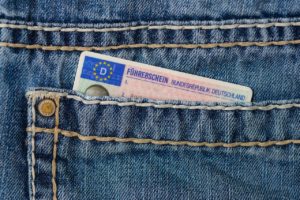
Driving and Driver’s licences
If you are only visiting, you need an International driver permit which you can apply for at the AA in South Africa If you stay
Useful apps
We have a page with a list of apps we think might helpful

Useful apps
Having the correct information available when you need it is priceless. Here are some apps that can make your life easier in Germany. Note for
Related content

Going to the Hairdresser
The first time I went to a hairdresser in Germany, she asked if I want her to cut my pony. I told her no, but

Visiting a doctor
When I first came to Germany, I was fortunate to still frequently travel back to SA, so I did all my check-ups there and tried
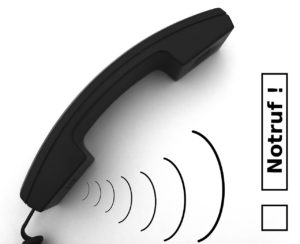
Emergency Contacts
The following numbers can be dialled in an emergency, either from a landline or mobile phone. 112The national emergency number. This can be used for



You must be logged in to post a comment.